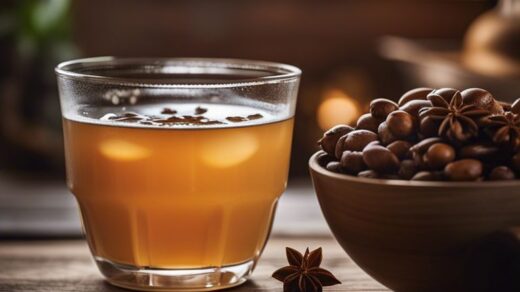Foods have the power to nourish you and improve your well-being. In a world filled with endless food options, it can be overwhelming to choose what to eat. That’s why knowing about the 10 best foods can guide you in making healthy choices for your body. These foods not only taste delicious but are also packed with nutrients that will benefit your overall health. Let’s explore the top 10 good foods that deserve a place on your plate.
Key Takeaways:
- Lean Proteins: Foods like chicken breast, fish, and tofu provide necessary amino acids and help build muscle.
- Leafy Greens: Vegetables such as spinach and kale are packed with nutrients like vitamins A, C, and K, as well as fiber.
- Whole Grains: Options like quinoa, brown rice, and oats offer complex carbohydrates, which provide sustained energy and fiber for digestion.
Nutrient-Dense Foods
Leafy Greens
For Nutrient-Dense foods, leafy greens are a powerhouse of vitamins, minerals, and antioxidants. Vegetables like spinach, kale, and Swiss chard are rich in nutrients such as Vitamin A, Vitamin K, iron, and fiber. Including a variety of leafy greens in your diet can help support your overall health and well-being.
Berries and Other Fresh Fruits
To Nutrient-Dense foods, berries and other fresh fruits are excellent choices to add to your diet. Berries like blueberries, strawberries, and raspberries are packed with antioxidants and vitamins. They are also low in calories and high in fiber, making them a perfect sweet treat that is good for you.
Fresh fruits like oranges, apples, and bananas are also beneficial as they provide a natural source of vitamins and minerals. Including a colorful array of fresh fruits in your daily meals can help boost your immune system and provide necessary nutrients for your body to thrive.
Protein-Packed Options
Clearly, protein is an crucial nutrient that plays a crucial role in building and repairing tissues in your body. Including protein-packed foods in your diet can help you feel fuller longer and support muscle growth. Here are some great protein options to consider:
Grilled Chicken and Fish
On your quest for delicious and nutritious protein sources, look no further than grilled chicken and fish. These lean meats are not only low in fat but also high in quality protein. Grilling them enhances their flavors and retains nutrients, making them a healthy choice for your meals. Whether marinated with herbs and spices or simply seasoned with salt and pepper, grilled chicken and fish make a satisfying addition to your diet.
Legumes and Nuts
An excellent plant-based protein option, legumes and nuts can provide you with a substantial amount of protein along with fiber and crucial nutrients. Legumes like lentils, chickpeas, and black beans are versatile ingredients that can be added to salads, soups, and stews. Nuts such as almonds, walnuts, and pistachios make for a crunchy and protein-rich snack. Including a variety of legumes and nuts in your diet can help you meet your protein needs while adding a flavorful twist to your meals.
Whole Grains for a Healthy Gut
To maintain a healthy gut, it’s important to include whole grains in your diet. Whole grains are rich in fiber, which helps promote good digestion and supports a diverse microbiome. Incorporating a variety of whole grains can provide your body with important nutrients and improve your overall gut health. For more information on the benefits of whole grains, you can explore 10 great health foods.
Brown Rice and Quinoa
Brown rice and quinoa are excellent sources of whole grains that can be easily incorporated into your meals. Brown rice is a nutritious alternative to white rice, as it contains more fiber, vitamins, and minerals. Quinoa, a complete protein source, is also gluten-free and packed with fiber and antioxidants. Adding brown rice and quinoa to your diet not only provides important nutrients but also supports a healthy gut microbiome.
Whole Wheat Bread and Pasta
As far as whole grains, whole wheat bread and pasta are popular choices that can add nutritional value to your meals. Whole wheat options retain the grain’s outer layer, the bran, and germ, making them higher in fiber and nutrients compared to refined grains. Whole wheat bread and pasta can help you feel fuller for longer, regulate your blood sugar levels, and contribute to a healthier gut.
This variety of whole wheat products can be a delicious and nutritious addition to your diet. When choosing whole wheat bread and pasta, look for options with minimal processing and without added sugars to reap the most benefits for your gut health.
Healthy Fats for Brain Function
Your brain is a complex organ that relies on a variety of nutrients to function at its best. Pertaining to healthy fats, avocados and olive oil are two top choices that can benefit your brain function.
Avocados and Olive Oil
Brain health is crucial for overall well-being, and incorporating avocados and olive oil into your diet can support cognitive function. Avocados are rich in monounsaturated fats, which help promote healthy blood flow, crucial for optimal brain function. Meanwhile, olive oil is packed with antioxidants that protect brain cells from damage caused by free radicals. Including these foods in your meals can enhance your focus, memory, and overall brain health.
Fatty Fish and Nuts
On top of avocados and olive oil, fatty fish like salmon and nuts are excellent choices for boosting your brain function. Fatty fish is a great source of omega-3 fatty acids, which are crucial for brain health and have been linked to improved cognition and mood. Nuts, such as walnuts and almonds, are packed with vitamin E and healthy fats that support overall brain function and can help protect against cognitive decline as you age.
This combination of avocados, olive oil, fatty fish, and nuts can provide your brain with the nutrients it needs to thrive and support your cognitive abilities. By incorporating these healthy fats into your diet, you can nourish your brain and promote optimal brain function for years to come.

Fermented Foods for a Strong Immune System
All around the world, fermented foods have been cherished for their numerous health benefits, particularly for boosting your immune system. These foods are rich in probiotics, which are beneficial bacteria that promote good gut health and aid in digestion. Including fermented foods in your diet can help enhance your immune response and keep you feeling healthy and energized.
Kimchi and Sauerkraut
On your quest for a robust immune system, don’t overlook the powerhouse duo of kimchi and sauerkraut. Kimchi, a staple in Korean cuisine, is a spicy fermented cabbage dish that is teeming with probiotics and vitamins. Sauerkraut, a German favorite made from fermented cabbage, is also loaded with probiotics and antioxidants. Incorporating these tangy and crunchy treats into your meals can introduce a burst of flavor and health benefits to your plate.
Yogurt and Kefir
Kefir, a fermented drink traditionally made from milk, is a tangy and effervescent beverage that is brimming with probiotics. Pair it with yogurt, another probiotic-rich dairy product, for a delicious and nutritious boost to your day. Consuming yogurt and kefir regularly can help maintain a healthy balance of gut bacteria and support your immune system. Additionally, these dairy delights are versatile ingredients that can be enjoyed on their own or incorporated into a variety of recipes.
Fermented foods like kimchi, sauerkraut, yogurt, and kefir not only tantalize your taste buds but also nurture your immune system. By including these probiotic powerhouses in your diet, you can strengthen your body’s defenses and promote overall well-being.

Hydrating Foods for Skin Health
Many foods can help keep your skin hydrated and healthy. Including hydrating foods in your diet is necessary for maintaining soft, supple skin that glows from within. Water-rich foods not only help to hydrate your skin but also provide necessary nutrients that promote overall skin health.
Watermelon and Cucumbers
With their high water content, watermelon and cucumbers are excellent choices to keep your skin hydrated. Watermelon is not only delicious but also packed with vitamins A and C, which are necessary for skin health. Cucumbers, on the other hand, are known for their cooling and hydrating properties, making them a refreshing snack that can also benefit your skin.
Celery and Tomatoes
Cucumbers are not the only hydrating vegetables you should include in your diet. Celery and tomatoes are also great options to keep your skin hydrated and glowing. Celery is a crunchy vegetable that is made up of mostly water, making it a hydrating snack choice. Tomatoes, rich in antioxidants like lycopene, can help protect your skin from sun damage and keep it looking youthful.
Plus, both celery and tomatoes are low in calories, making them a perfect addition to your meals if you’re watching your weight. Including these hydrating foods in your diet can not only improve your skin’s appearance but also support your overall health and well-being.

Summing up
Taking this into account, it is crucial to incorporate a variety of nutrient-rich foods into your diet to maintain good health. By including foods like fruits, vegetables, whole grains, and lean proteins, you can ensure that you are getting the necessary vitamins, minerals, and antioxidants to support your overall well-being. Remember to balance your meals and listen to your body’s hunger and fullness cues to make the most of these beneficial foods.
Q: What are the benefits of eating nutrient-dense foods?
A: Nutrient-dense foods provide crucial vitamins, minerals, and antioxidants that support overall health and well-being. They can help boost immunity, increase energy levels, improve digestion, and promote healthy weight management.
Q: How can I incorporate more nutrient-dense foods into my diet?
A: You can incorporate more nutrient-dense foods into your diet by including a variety of fruits, vegetables, whole grains, lean proteins, and healthy fats. Try to eat a rainbow of colors to ensure you are getting a diverse range of nutrients.
Q: Are there any specific nutrient-dense foods I should include in my diet?
A: Some examples of nutrient-dense foods include leafy green vegetables like spinach and kale, berries such as blueberries and strawberries, nuts and seeds like almonds and chia seeds, fatty fish like salmon and mackerel, and whole grains such as quinoa and brown rice.


